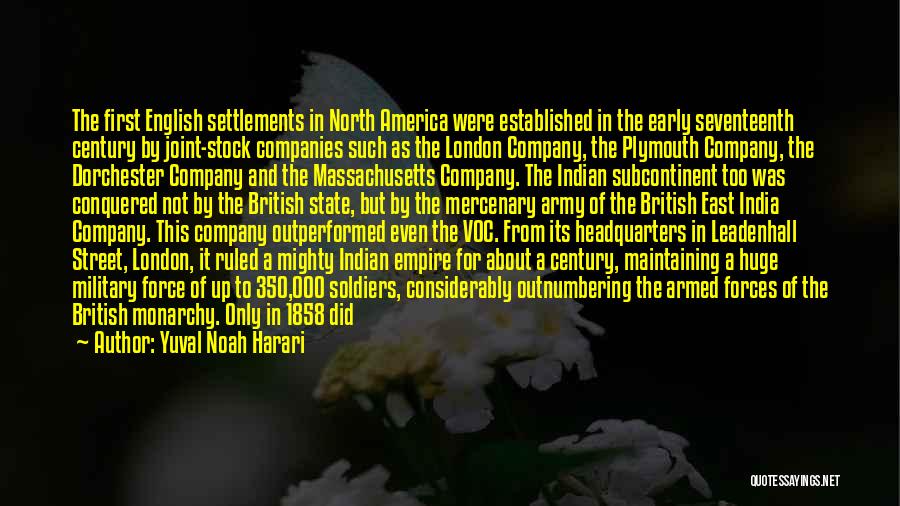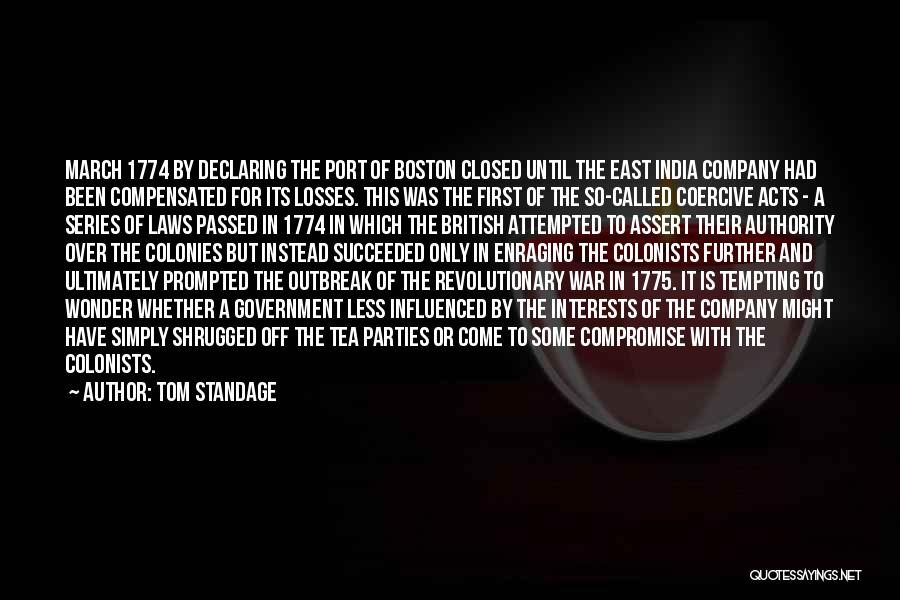Quotes & Sayings About The British East India Company
Enjoy reading and share 3 famous quotes about The British East India Company with everyone.
Top The British East India Company Quotes

Rabindranath Tagore's family, connected to the British East India Company right from the settling of Calcutta in 1690, was a prominent beneficiary of the British economic and cultural reshaping of India. His grandfather was the first big local businessman of British India, and socialized with Queen Victoria and other notables on his trips to Europe; his elder brother was the first Indian to be admitted by the British into the Indian Civil Service (ICS). — Pankaj Mishra

The first English settlements in North America were established in the early seventeenth century by joint-stock companies such as the London Company, the Plymouth Company, the Dorchester Company and the Massachusetts Company. The Indian subcontinent too was conquered not by the British state, but by the mercenary army of the British East India Company. This company outperformed even the VOC. From its headquarters in Leadenhall Street, London, it ruled a mighty Indian empire for about a century, maintaining a huge military force of up to 350,000 soldiers, considerably outnumbering the armed forces of the British monarchy. Only in 1858 did the British crown nationalise India along with the company's private army. Napoleon made fun of the British, calling them a nation of shopkeepers. Yet these shopkeepers defeated Napoleon himself, and their empire was the largest the world has ever seen. — Yuval Noah Harari

March 1774 by declaring the port of Boston closed until the East India Company had been compensated for its losses. This was the first of the so-called Coercive Acts - a series of laws passed in 1774 in which the British attempted to assert their authority over the colonies but instead succeeded only in enraging the colonists further and ultimately prompted the outbreak of the Revolutionary War in 1775. It is tempting to wonder whether a government less influenced by the interests of the company might have simply shrugged off the tea parties or come to some compromise with the colonists. — Tom Standage





